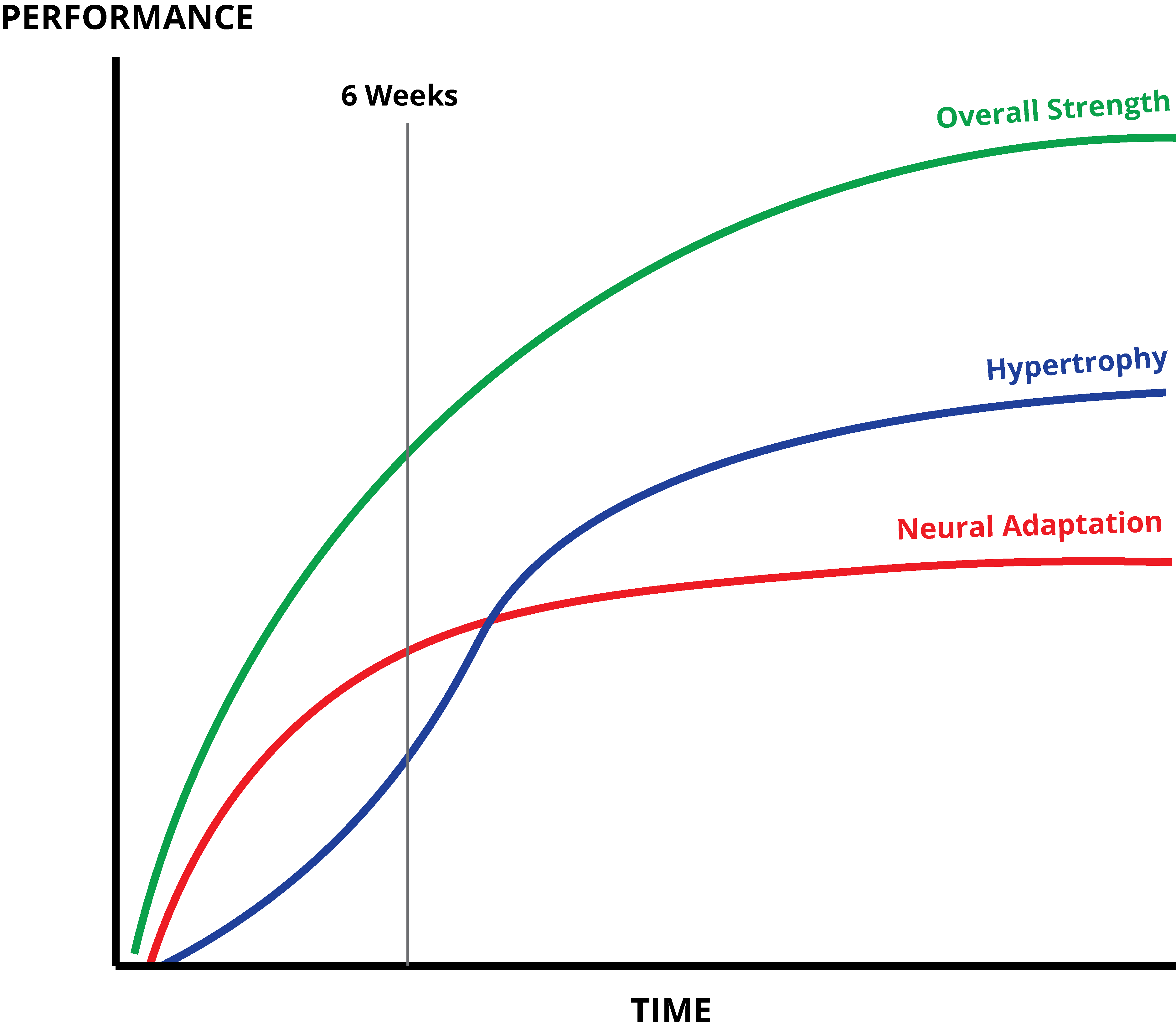
Do Pushups Build Muscle?
Do pushups build muscle? And specifically, does the 100 Pushups Challenge help build muscle? These are both good questions. Fed up with giving the cop out answer of “it depends”, I decided to make this graph to help explain it visually…

Hypertrophy = muscle building Neural adaptation = improvements in the firing of the muscles
The Overall Strength line is the sum of hypertrophy + neural adaptation.
At its essence, improved strength comes from one of two systems – hypertrophy or neural adaptation. Both can happen at the same time, but as the graph attempts to illustrate, the predominance of one over the other depends on the length of time a muscle has been trained for.
As a general rule, strength gains from the first six weeks of training predominantly come from neural adaptation. Hypertrophy is an energy-intensive process, so the body looks for easier adaptations first, before it begins to dedicate precious energy to muscle building.
Put differently, building muscle is difficult no matter how hard you train in those first six weeks. The 100 Pushup Challenge is 45 days which roughly equates to this 6-week threshold, so a simple conclusion to draw is that for the average untrained individual, the 100 Pushups training plan will not add much, if any, noticeable muscle mass. However, the same can be said for ANY type of resistance training program.
The upside is that if adding muscle mass is a primary goal for you, the 100 pushups challenge is the perfect foundation upon which to start focusing on hypertrophy. It gets a lot of the neural adaptation out the way, as well as it being a healthy way to build up the resilience of the tendons and ligaments to cope with a more rigorous resistance training program. It also ingrains important movement patterns in your shoulder and core muscles which are essential to heavier free weight training.
If you are a trained individual, and are already neurally adapted to resistance training, the 100 pushups challenge certainly has the potential to help you gain upper body mass. This is of course contingent on the usual factors for muscle growth, chiefly:
- A sustained caloric surplus (calories in > calories out)
- Adequate rest and recovery
- Progressive overload (done by manipulating intensity, number of sets, reps and/or frequency of workouts).
Even with all these bases covered, muscle building is still a marathon, not a sprint. Under ideal conditions with ideal training, and without steroids, the human body can gain a MAX of about 1-1.5lbs of muscle per week. You are not suddenly going to start sprouting muscles just be doing a few pushups every day. Other factors have to be in place over a period of time.
One of our goals for the 100 pushup challenge is to have you embrace pushups and continue doing them way beyond the formal 45 day challenge. Pushups every day, for life. In this longer time frame, the potential for hypertrophy is significant.
Summary
Most of the strength gains in the initial part of any resistance-based training program comes from neural adaptation. You cannot skip this step, and neither should you want to. It is essentially free strength, and who doesn’t want to be stronger?